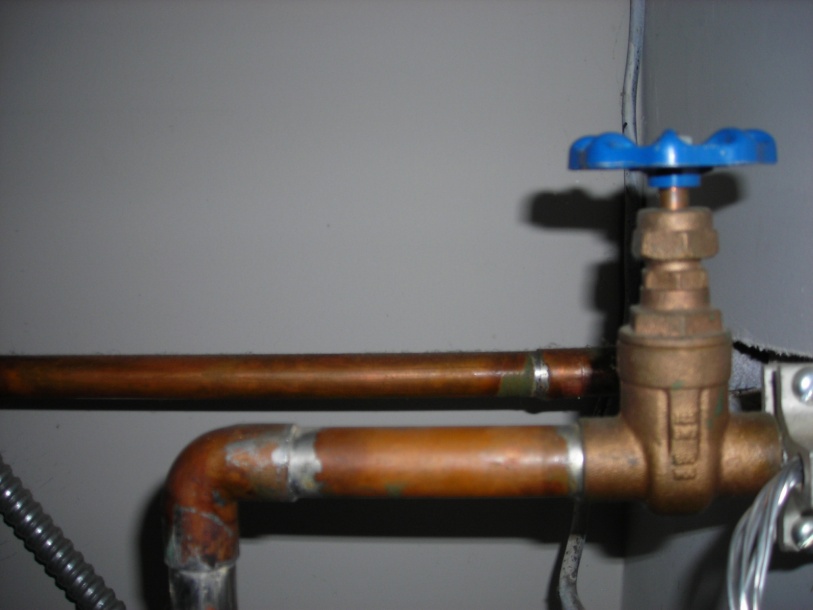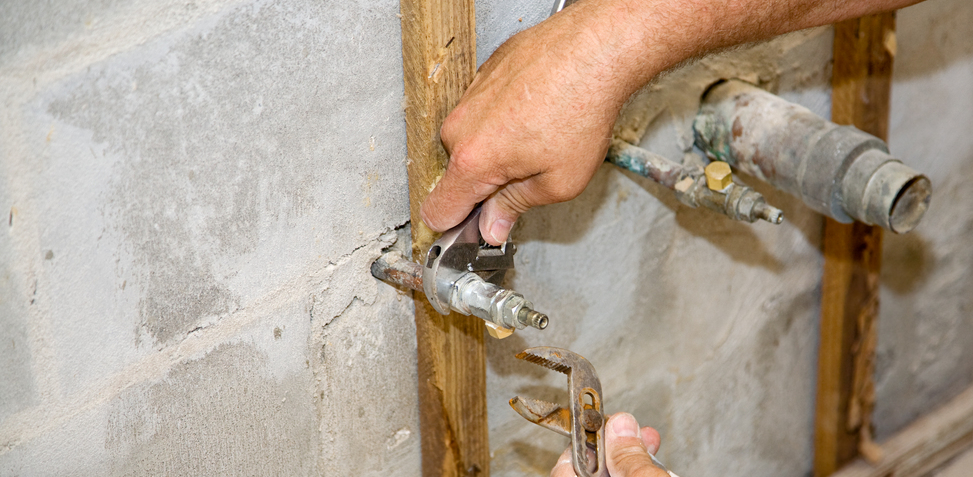Advice for Dealing with Plumbing in Older Homes: What You Need to Know
This PostThe author is making a few good annotation regarding Main Plumbing Issues Found in Old Houses in general in this post just below.

Older homes usually include charm, personality, and history, but they can additionally bring a host of plumbing problems. Whether you're dealing with maturing pipelines, low water stress, or leakages, knowing just how to deal with these usual problems is critical to preserving a safe and practical home. In this guide, we'll check out the typical plumbing obstacles faced by older homes and give functional solutions to maintain your plumbing in leading shape.
Understanding Typical Plumbing Problems
Aging Pipes
Among the most usual problems in older homes is aging pipelines. Depending on the age in which your home was developed, the pipes could be made from materials that have worn away gradually, such as galvanized steel, cast iron, or perhaps lead. These materials can corrode, end up being brittle, or establish leakages, resulting in water damages and possible health hazards.
Water Quality Testing
Older pipelines can impact the top quality of your water. Conduct a water quality examination to check for contaminants such as lead, corrosion, or other contaminations that may be presented by aging pipelines.
Solutions for Typical Pipes Issues
Changing Aging Pipes
If your home has old, degrading pipelines, take into consideration changing them with modern materials like copper or PEX. This can be a considerable financial investment, but it will stop future concerns and enhance the security and integrity of your pipes system.
Fixing Low Water Pressure
To take care of low tide pressure, begin by cleaning or replacing old components and removing mineral accumulation in the pipes. If the issue continues, it might be necessary to replace sections of corroded pipelines.
Repairing and Changing Leaking Pipes
For small leaks, you can use pipeline clamps or epoxy putty as a temporary fix. However, it's finest to replace leaking pipes completely to stay clear of more damage.
Upgrading Fixtures
Updating old components to modern, water-efficient models can boost your home's pipes efficiency and lower water intake. Look for fixtures with the WaterSense label for the best performance.
Dealing with Pipe Deterioration
If your pipelines are rusted, replacing them with corrosion-resistant materials like copper, PVC, or PEX is the most effective solution. Normal examinations and water top quality upkeep can assist stop even more corrosion.
Low Water Stress
If you're experiencing low tide pressure, it could be due to natural resources, rust inside the pipes, or old fixtures that are no more working effectively. This can be a major hassle, especially in areas like showers and sinks.
Dripping Pipelines
Leaks are another constant problem in older homes, typically triggered by corroded or damaged pipes. Even tiny leaks can lead to considerable water damage, mold and mildew development, and enhanced water bills otherwise attended to immediately.
Outdated Components
Outdated pipes fixtures such as taps, bathrooms, and showerheads not only look old however may additionally be less reliable, susceptible to leaks, or inappropriate with modern pipes requirements.
Pipe Deterioration
Rust is an usual issue in older pipelines, especially those made from galvanized steel or actors iron. Corroded pipelines can restrict water circulation, cause staining, and ultimately bring about leaks or pipeline bursts.
Analyzing the Condition of Your Pipes
Examining Noticeable Pipes
Begin by inspecting any type of noticeable pipes in your home, such as those in cellars, crawl spaces, or under sinks. Look for indications of deterioration, leaks, or rust, which can show underlying problems.
Looking for Leaks
Look for leakages by inspecting areas around taps, toilets, and under sinks. You can also monitor your water meter prior to and after a duration of no water use to find hidden leaks.
When to Call an Expert
While some plumbing issues can be managed with do it yourself solutions, there are times when it's finest to employ a professional. If you're dealing with major leaks, considerable corrosion, or are not sure concerning the problem of your pipelines, a licensed plumbing can supply experienced assessment and repair work.
Preventive Maintenance Tips
Routine Inspections
On a regular basis evaluate your pipes system for indicators of wear and tear. Catching issues early can avoid expensive repair services down the line.
Water Stress Law
Guarantee your water stress is within the advised array to avoid worrying your pipes and fixtures. A plumbing can install a stress regulatory authority if required.
Water Quality Maintenance
Mount water filters or conditioners if your water high quality is poor. This can secure your pipes and fixtures from damage triggered by difficult water or pollutants.
Proactive Pipe Substitute
If your home has older pipes, consider positive replacement prior to significant problems occur. This can save you from emergency situation repair services and water damage.
Conclusion
Handling plumbing concerns in older homes needs a combination of vigilance, precautionary maintenance, and prompt upgrades. By recognizing the typical challenges and recognizing when to look for professional assistance, you can guarantee your pipes system remains useful and reliable for several years ahead.
Common Plumbing Problems in Older Homes
Older homes have a ton of character from the antique brass faucets, clawfoot tubs, and colorful tile to the Dutch doors, transom windows, and archways, there s a lot to love. Unfortunately, that character often includes old plumbing that s past its prime and isn t fit to support modern appliances.
If you own an older home and are suspicious about strange noises (ghosts?), smells, leaks, or frequent clogs in your plumbing, it's possible that your home s old age is to blame.
Learn more about the most common old house plumbing problems, and what can be done to fix them!
What Are the Most Common Plumbing Problems in Old Houses?
Old, corroded piping. Most older pipes are made of material that corrodes and rusts more easily. Even if over the years some of that piping was replaced with better material, the rest may be damaged or repaired with lower-quality material. Though expensive, it may be the best option to re-pipe your plumbing especially if there s rust or lead in your water. Slow drains. This could be the result of many issues, but most likely because of pipe bellies. These are sags in your drainpipes that happen as your home settles and shifts downward over time, putting pressure on your pipes and creating negative slopes. This can restrict water from flowing correctly through them and result in slow drains. Frequent clogging. As you might expect, pipe bellies can also lead to frequent clogging. Another reason for clogging could be due to buildup over time, or blockages from sediment and root growth. Scheduling a drain inspection and drain unclogging service can eliminate this issue. Damaged or failing sewer lines. Old homes are more likely to have foundational shifts and tree root overgrowth. This can put a lot of pressure on and in your sewer lines, leading to damage. Another common reason for failed sewer lines is because of modern appliance upgrades. Newer appliances put more strain on sewer lines, and if your old pipes aren t equipped to handle this, it can result in damage. If you have any wastewater backup, slow drains, or soft spots in your yard, you may need sewer line replacement. Worn or outdated fixtures. Plumbing fixtures old or new aren t built to last forever. Even if your fixtures seem like they re working well, it s best to check the wear on any internal parts. Minor wear and tear over time can lead to more costly leaks and plumbing issues. Our experts can perform a plumbing inspection for any part of your home s plumbing. Improper installations or repairs. Whether your plumbing was installed a hundred years ago, installed incorrectly, repaired incorrectly, or repaired with outdated materials, this can affect the long-term stability of your plumbing. In older homes especially, having your plumbing inspected is vital to preventing damage. What Are Old Plumbing Pipes Made Of?
Galvanized steel. Most often used between the 1930s and the 1980s, this piping material was discovered later in the 1990s to be prone to rust and corrosion, releasing lead into the water, which is dangerous to consume. Copper. Most homes built around the 1960s are likely to have copper piping. Unlike galvanized steel, copper is one of the most durable materials for plumbing pipes. The issue with this material is the risk of lead, which could be present in the piping itself or the solder applied to the joints and fittings. PVC. This material is still used today and was often used in older homes where piping was replaced because it was easy and inexpensive to install. PVC is also very durable, lead-free, resistant to rust and corrosion, and handles high water pressure well. The downside is that hot water can make it warp. How to Fix Plumbing Problems in Old Homes
Have your plumbing inspected. Before you begin or schedule any type of repair, schedule a plumbing inspection. An expert will be able to properly identify all the issues in your plumbing and the best solution to avoid further damage. Get your plumbing repaired or replaced as needed. Depending on the issues found with your plumbing, you may need minor repairs or larger replacements. Make sure these issues are addressed before you tackle any smaller issues. Remove any clogs or buildup. It s likely your old pipes are clogged with debris, mineral buildup, hair, tree roots, and more. Having your drainpipes cleaned will improve overall drainage and help prevent future leaks. Replace old fixtures. Before replacing any fixtures, check with your local plumber first. Not only can new fixtures strain your old plumbing pipes, but installing them incorrectly can lead to costly damage.

Hopefully you enjoyed our section about Common Plumbing Challenges In Old Buildings. Many thanks for taking the time to read through our posting. Liked our review? Please share it. Let another person locate it. Many thanks for being here. Kindly check up our site back soon.
Call Today